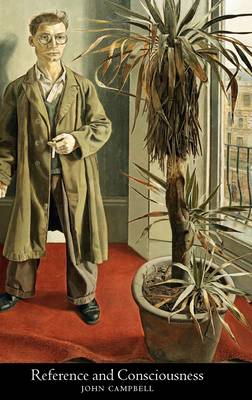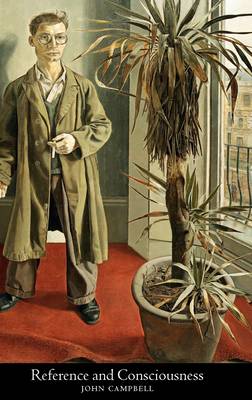
- Afhalen na 1 uur in een winkel met voorraad
- Gratis thuislevering in België vanaf € 30
- Ruim aanbod met 7 miljoen producten
- Afhalen na 1 uur in een winkel met voorraad
- Gratis thuislevering in België vanaf € 30
- Ruim aanbod met 7 miljoen producten
Zoeken
€ 97,45
+ 194 punten
Uitvoering
Omschrijving
What explains our ability to refer to the objects we perceive? John Cambell argues that our capacity for reference is explained by our capacity to attend selectively to the objects of which we are aware; that this capacity for conscious attention to a perceived object is what provides us with our knowledge of reference. When someone makes a reference to a perceived object, your knowledge of which thing they are talking about is constituted by your consciously attending to the relevant object. Campbell articulates the connections between these three concepts: reference, attention, and consciousness. He looks at the metaphysical conception of the environment demanded by such an account, and at the demands imposed on our conception of consciousness by the point that consciousness of objects is what explains our capacity to think about them. He argues that empirical work on the binding problem can illuminate our grasp of the way in which we have knowledge of reference, supplied by conscious attention to the relevant object.
Reference and Consciousness illuminates fundamental problems about thought, reference, and experience by looking at the underlying psychological mechanisms on which conscious attention depends. It is an original and stimulating contribution to philosophy and cognitive science.
Reference and Consciousness illuminates fundamental problems about thought, reference, and experience by looking at the underlying psychological mechanisms on which conscious attention depends. It is an original and stimulating contribution to philosophy and cognitive science.
Specificaties
Betrokkenen
- Auteur(s):
- Uitgeverij:
Inhoud
- Aantal bladzijden:
- 278
- Taal:
- Engels
- Reeks:
Eigenschappen
- Productcode (EAN):
- 9780199243808
- Verschijningsdatum:
- 27/06/2002
- Uitvoering:
- Hardcover
- Formaat:
- Genaaid
- Afmetingen:
- 164 mm x 242 mm
- Gewicht:
- 598 g

Alleen bij Standaard Boekhandel
+ 194 punten op je klantenkaart van Standaard Boekhandel
Beoordelingen
We publiceren alleen reviews die voldoen aan de voorwaarden voor reviews. Bekijk onze voorwaarden voor reviews.











